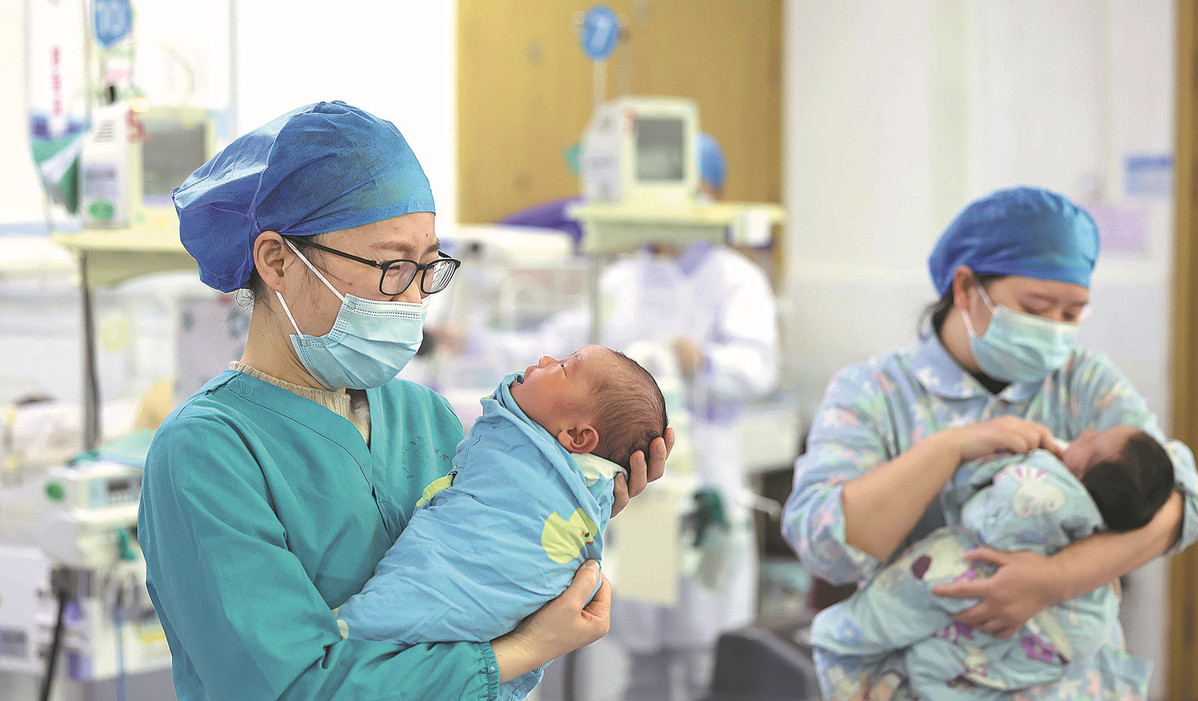
Medical staff at the People's Hospital of Yuping county, Tongren city, Guizhou province, care for newborns on Jan 2, 2024. [Photo by Hu Panxue/For China Daily]
A prominent reproductive medicine specialist from China has called for stepping up reproductive health education and routine fertility evaluations, as well as gradually expanding access to egg freezing services to preserve fertility in a society seeing declining birthrates.
Qiao Jie, academician with the Chinese Academy of Engineering and vice-president of Peking University, said that a woman's peak reproductive years are between early 20s to 28. By age 35, fertility starts to decline and drops precipitously from age 40.
She spoke during the fourth China Population and Development Forum held in Beijing last week. It was jointly held by China Family Planning Association, the committee on population, resources and environment of the National Committee of the Chinese People's Political Consultative Conference, as well as the China Population and Development Research Center.
As the younger generation tend to delay marriage and childbearing, Qiao said that it is important to spread awareness about reproduction knowledge and carry out routine assessments of egg reserves in ovaries among females of childbearing age.
Qiao also suggested developing novel technologies aimed at preserving female fertility and giving more women access to egg freezing services in a moderate and orderly manner.
At present, China only allows married women to freeze their eggs under specific circumstances, such as before they undergo chemotherapies or when they are diagnosed with severe ovarian diseases.
Qiao also suggested stepping up fundamental research in reproductive health and accelerating the application of scientific research advances.